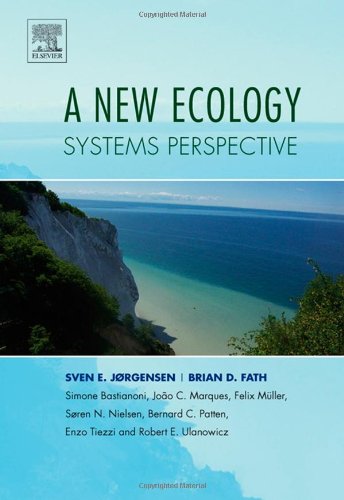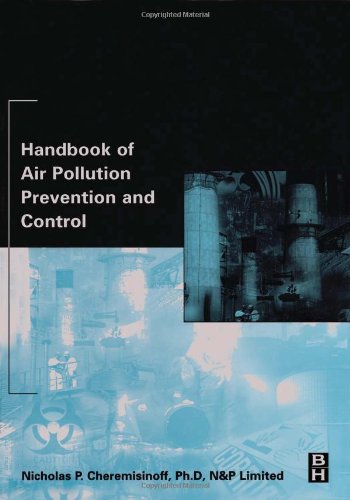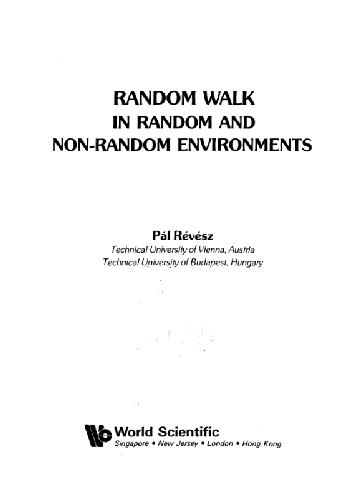Sven Erik Jørgensen, Brian Fath, Simone Bastianoni, Joao C. Marques, Felix Muller, S. Nors Nielsen, Bernard D. Patten, Enzo Tiezzi, Robert E. Ulanowicz978-0-444-53160-5
Table of contents :
A New Ecology: Systems Perspective……Page 4
Copyright page……Page 5
Contents……Page 6
Preface……Page 10
1.1 Environmental Management has Changed……Page 14
1.2 Ecology is Changing……Page 15
1.3 Book Outline……Page 16
2.1 Why must Ecosystems be open?……Page 20
2.2 An Isolated System would die (Maximum Entropy)……Page 21
2.3 Physical Openness……Page 26
2.4 The Second Law of Thermodynamics Interpreted for Open Systems……Page 31
2.5 Dissipative Structure……Page 33
2.6 Quantification of Openness and Allometric Principles……Page 35
2.7 The Cell……Page 43
2.8 What about the Environment?……Page 44
2.9 Conclusion……Page 45
3.1 Introduction……Page 48
3.2 Why is Ontic Openness so Obscure?……Page 49
3.3 Ontic Openness and the Physical World……Page 52
3.4 Ontic Openness and Relative Stability……Page 62
3.5 The Macroscopic Openness: Connections to Thermodynamics……Page 63
3.6 Ontic Openness and Emergence……Page 66
3.7 Ontic Openness and Hierarchies……Page 68
3.8 Consequences of Ontic Openness: A Tentative Conclusion……Page 69
4.1 Since the Beginnings of Ecology……Page 72
4.2 The Challenge from Thermodynamics……Page 73
4.3 Deconstructing Directionality?……Page 75
4.4 Agencies Imparting Directionality……Page 76
4.5 Origins of Evolutionary Drive……Page 79
4.6 Quantifying Directionality in Ecosystems……Page 81
4.7 Demystifying Darwin……Page 87
4.8 Directionality in Evolution?……Page 89
4.9 Summary……Page 90
5.1 Introduction……Page 92
5.2 Ecosystems as Networks……Page 93
5.3 Food Webs……Page 95
5.4 Systems Analysis……Page 97
5.6 Network Environ Analysis Primer……Page 99
5.7 Summary of the Major Insights Cardinal Hypotheses (CH) from Network Environ Analysis……Page 105
5.8 Conclusions……Page 114
6.1 Variability in Life Conditions……Page 116
6.2 Ecosystem Development……Page 118
6.3 Orientors and Succession Theories……Page 125
6.4 The Maximum Power Principle……Page 128
6.5 Exergy, Ascendency, Gradients, and Ecosystem Development……Page 133
6.6 Support for the Presented Hypotheses……Page 138
6.7 Toward a Consistent Ecosystem Theory……Page 146
6.8 Exergy Balances for the Utilization of Solar Radiation……Page 152
6.9 Summary and Conclusions……Page 154
7.1 The Normality of Disturbance……Page 156
7.2 The Risk of Orientor Optimization……Page 164
7.3 The Characteristics of Disturbance……Page 165
7.4 Adaptability as a Key Function of Ecosystem Dynamics……Page 169
7.5 Adaptive Cycles on Multiple Scales……Page 173
7.6 A Case Study: Human Disturbance and Retrogressive Dynamics……Page 177
7.7 Summary and Conclusions……Page 179
8.1 Introduction……Page 180
8.2 Do Ecological Principles Encompass other Proposed Ecological Theories?: Evolutionary Theory……Page 181
8.3 Do Ecological Principles Encompass other Proposed Ecological Theories?: Island Biogeography……Page 189
8.4 Do Ecological Principles Encompass other Proposed Ecological Theories?: Latitudinal Gradients in Biodiversity……Page 193
8.5 Do Ecological Principles Encompass other Proposed Ecological Theories?: Optimal Foraging Theory……Page 197
8.6 Do Ecological Principles Encompass other Proposed Ecological Theories?: Niche Theory……Page 200
8.7 Do Ecological Principles Encompass other Proposed Ecological Theories?: Liebig’s Law of the Minimum……Page 204
8.8 Do Ecological Principles Encompass other Proposed Ecological Theories?: The River Continuum Concept (RCC)……Page 207
8.9 Do Ecological Principles Encompass other Proposed Ecological Theories?: Hysteresis in Nature……Page 209
8.10 Conclusions……Page 211
9.1 Introduction……Page 212
9.2 Entropy Production as an Indicator of Ecosystem Trophic State……Page 213
9.3 The use of Ecological Network Analysis (ENA) for the Simulation of the Interaction of the American Black Bear and its Environment……Page 219
9.4 Applications of Network Analysis and Ascendency to South Florida Ecosystems……Page 223
9.5 The Application of Eco-Exergy as Ecological Indicator for Assessment of Ecosystem Health……Page 231
9.6 Emergy as Ecological Indicator to Assess Ecosystem Health……Page 234
9.7 The Eco-Exergy to Empower Ratio and the Efficiency of Ecosystems……Page 241
9.8 Application of Eco-Exergy and Ascendency as Ecological Indicator to the Mondego Estuary (Portugal)……Page 244
9.9 Conclusions……Page 254
10.2 Previous Attempts to Present an Ecosystem Theory……Page 256
10.3 Recapitulation of the Ecosystem Theory……Page 258
10.4 Are there Basic Ecosystem Principles?……Page 259
10.5 Conclusion……Page 261
References……Page 264
Index……Page 286







Reviews
There are no reviews yet.